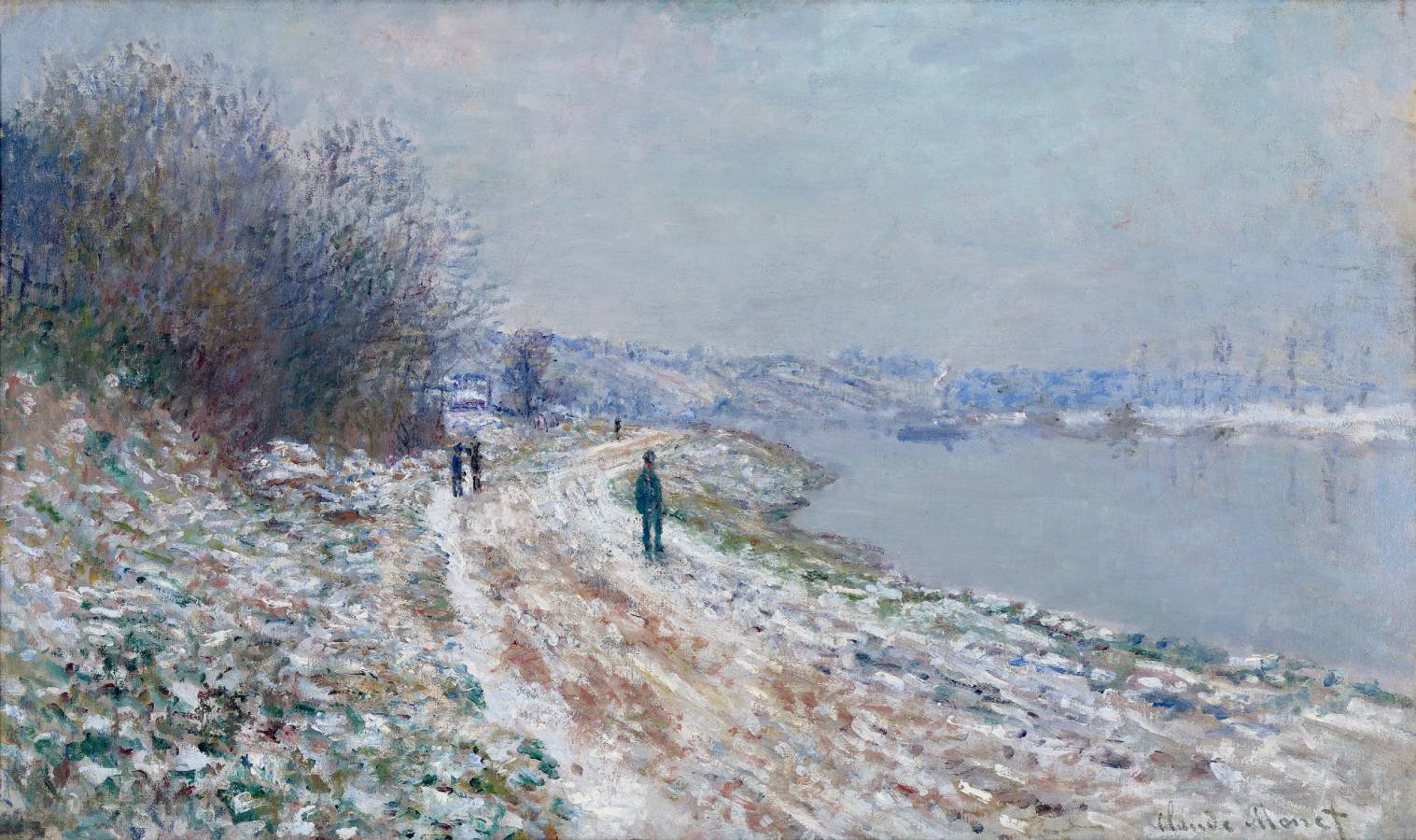Monet, Claude (1840-1926)
Chemin de halage à Argenteuil (Towpath at Argenteuil, Winter)
1875–1876
Oil on canvas, 60 x 100.01 cm
Buffalo AKG Art Museum, Buffalo
In 1871, following the end of the Franco-Prussian War, the newly wed Claude Monet moved from London to Argenteuil—a town located northwest of Paris on the River Seine. There, like his mentor Charles François Daubigny, Monet often worked from a boat-turned-studio in order to observe closely the effects of sunlight on the water. He remained in the area until 1876 and was joined for a time by artists Pierre-Auguste Renoir, Édouard Manet (French, 1832–1883), and Alfred Sisley. From this point on, the picturesque town of Argenteuil became a hub of artistic activity. In 1874, Monet and his contemporaries organized the first independent Impressionist exhibition. Believed to have been painted the following year, Towpath at Argenteuil, Winter contrasts two landscapes. This serene winterscape dotted with smokestacks along the right of the horizon portrays country life against the backdrop of industrialization. A slight opening in the heavy overcast sky melts snow along the riverbanks, and the faint flush of green in the trees hints at spring and, for Monet, the beginning of a new chapter in his life with his wife Camille. (AKG)
See also:
• Argenteuil (France)
